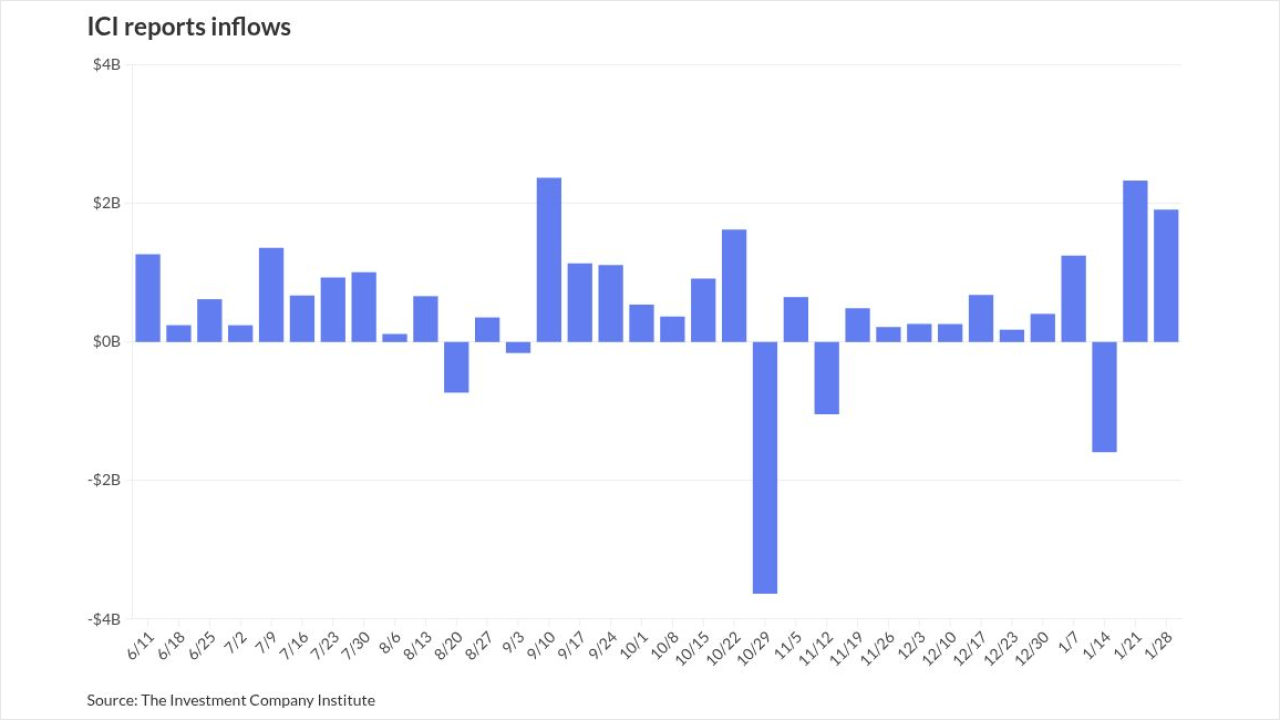The Municipal Securities Rulemaking Board’s chief market structure officer said this week COVID-19 is causing large block customer sales to skyrocket, as regulators aim to maintain vigilance in a rapidly changing environment.
From March 12-13 there were 108 customer sales of $10 million or more. From Jan. 2- March 6, on average there were 24 customer sales per day of that same size. The data was for tax-exempt fixed-rate municipals.
Tax-exempt municipal yields rose substantially last week causing the MSRB to take a look at trade data, said John Bagley, MSRB chief market structure officer.
“We saw a movement in the marketplace and we saw a change in trading patterns,” Bagley said. “We monitor trading patters all the time to see if something is going and we’ll continue to do that. If we see changes that are significant we’ll try to update the market.”

Customers sold an average of $2.3 billion of bonds in blocks of $10 million or more from March 11-13 compared to an average of $570 million per day from Jan. 2-March 6.
The municipal market has seen its fair share of volatility over the past few weeks as the virus that first appeared in China has spread globally. So far there have been over 7,000 cases of COVID-19 in the U.S. The virus that causes the illness is a member of the coronavirus family.
The MSRB has recently released a plethora of educational materials. In a notice from earlier this month, the regulatory group reminded the market that supervision of dealers does not have to be done in-person. That could be useful information as professionals seek to isolate to prevent spread of the virus.
Patrick Luby, senior municipal strategist at CreditSights, said it would not surprise him if mutual funds are raising cash and driving the increase in the block size sales of $10 million or more.
There has been a net increase in redemption demands as some investors are reacting to the current conditions by raising cash, Luby said.
“There is probably some buying going on but the dollar volume of investors who want to get out of their mutual funds is increasing,” Luby said. “To be able to pay those clients as they redeem their shares, the portfolio manager has to have cash available to do that.”
To maintain enough cash on hand, mutual funds are selling bonds to be able to pay those exiting clients.
Other traditional institutional types of accounts such as insurance companies and banks have not been active buyers in municipals, and therefore not likely to be big drivers of the recent selling activity, Luby said.
“They might be selling, but I think the big driver is going to be mutual funds,” Luby said.
As for the future, Luby said it will depend on the emotional condition of investors given the economic uncertainty.
“When there is less uncertainty then I think the market will start to perform better,” Luby said.
There were a lot of mutual fund redemptions last week, which drove price volatility and when that happens fund managers need to sell, said Michael Decker, senior vice president of policy and research with Bond Dealers of America.
Customer buys for trades of $100,000 or less, typically classified as retail trading, also increased. Customer purchases of $100,000 or less averaged about 8,600 trades per day between Jan. 2- March 6. On March 12, there were over 11,000 customer buys and on March 13 over 12,000 customers buys for $100,000 or less.
Customer purchases of large blocks were up as well, but not nearly as much as the increase in block selling, Bagley said in his report.





